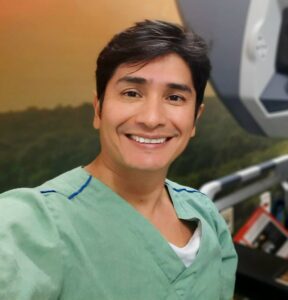Dr. Ronald Enrique Delgado Bocanegra, Endometriosis Specialist
City: Salvador, Bahia, Brazil
Philosophy of Endometriosis Care: My approach to the treatment of endometriosis is grounded primarily in the embryonic theory of origin, as proposed by Dr. David Redwine. According to this theory, endometriosis results from the aberrant differentiation of embryonic Müllerian remnants, which persist outside the uterine cavity and later develop into endometriotic lesions. This perspective shifts the focus away from retrograde menstruation and toward the concept that endometriosis is a congenital disease — present from birth and not caused by menstrual backflow. It explains cases in premenarchal girls, women with Müllerian anomalies, and the presence of endometriosis in distant locations that retrograde menstruation can’t account for. Clinically, this theory supports a surgical approach that emphasizes complete excision of all visible and suspected disease, rather than ablation or suppression. It also reinforces the idea that endometriosis is not a recurrent disease if completely removed — recurrence is often due to incomplete excision. Therefore, my goal is to perform meticulous, fertility-preserving excision surgery whenever possible, aiming for long-term relief and definitive treatment
What type of surgery do you perform for endometriosis: Excision
Medication: Grounded in the embryonic theory of endometriosis, I view the disease as congenital and not caused by retrograde menstruation. Therefore, my primary treatment is complete surgical excision, aiming for definitive management. Medications are used as supportive tools in two main contexts: before surgery, to manage symptoms temporarily when immediate surgery isn’t feasible. After surgery, in selected cases — like when there’s a residual microscopic disease or when fertility preservation is a priority. I typically use: Continuous combined oral contraceptives, Progestins (like dienogest) GnRH analogues with add-back therapy These options help control symptoms but don’t cure the disease. The focus remains on individualized, surgical-centered care.
Approach to Persistent Pain After Surgery: When patients experience persistent symptoms after surgery for endometriosis, my approach is comprehensive and individualized. First, I assess whether the symptoms are due to residual disease, coexisting conditions, or central sensitization. Persistent pain doesn’t always mean recurrence — it could be related to pelvic floor dysfunction, adenomyosis, irritable bowel syndrome, interstitial cystitis, or neuropathic pain. If I suspect residual or recurrent disease, I review the surgical report and imaging and may repeat diagnostic imaging with an expert. In some cases, reoperation may be necessary, especially if the initial surgery was incomplete. If other causes are identified, I work with a multidisciplinary team — including pelvic physiotherapists, pain specialists, gastroenterologists, and psychologists — to address the symptoms holistically. Medication (like progestins or neuromodulators) can also be used as part of symptom control, but not as the sole strategy. In essence, I treat persistent symptoms not with a one-size-fits-all approach, but through careful reassessment, patient education, and a multidisciplinary plan tailored to each woman’s needs.

